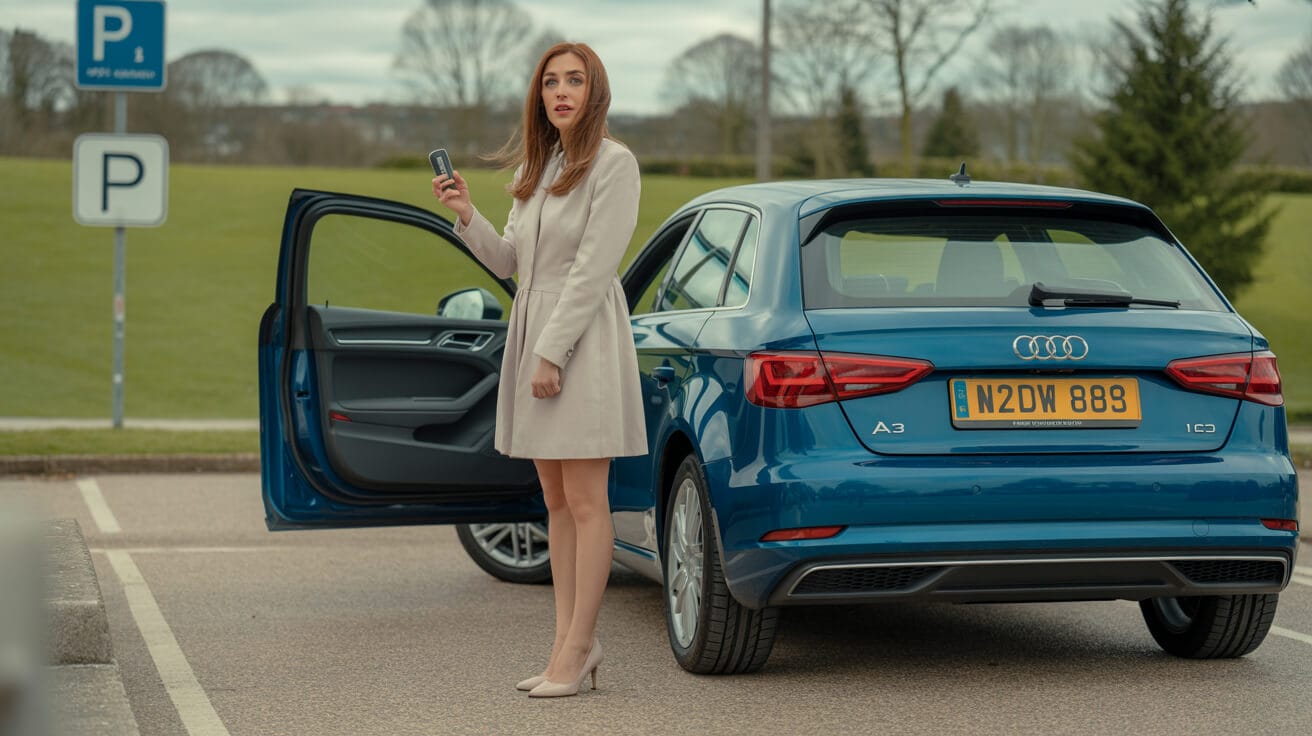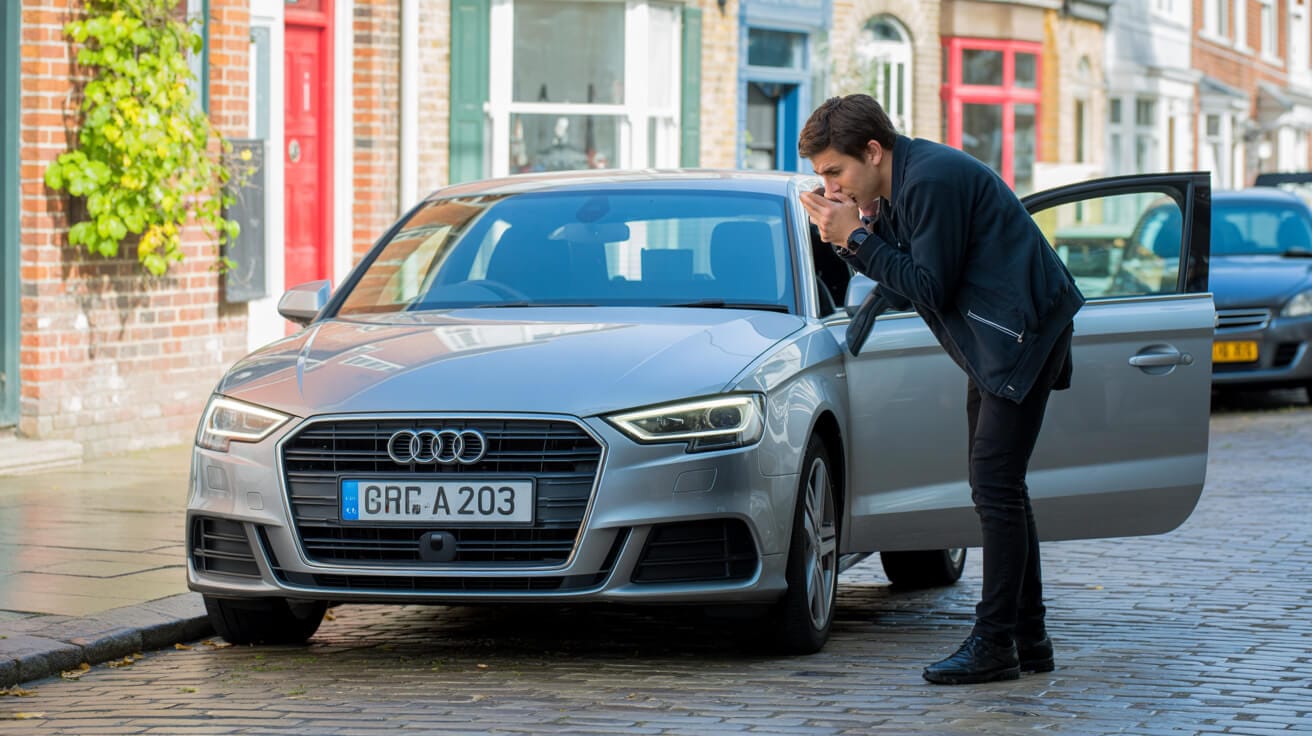What Does Car Key Programming Involve in the UK—And Why Is It Vital?
You find yourself locked out, your key refusing to start your car on a frosty morning in Leeds or London. That sinking feeling is met not by panic, but by a system of protection: a trained, fully vetted technician arrives, checks your ID, and—within an hour in most cases—hands you a key that works, powers your car, and restores your plans. This isn’t a mystery process. Each move is documented, each tool traceable, securing your right to access and protecting your investment for the next time life throws you a curveball.
Security isn’t Optional—It’s Built In
Car key programming is a bonded handshake between your car’s onboard computer and a new credential—your fob, remote, or digital key. Only with proof-of-identity and verified ownership does the work happen, aligning with strict UK legal and insurance requirements. These formalities serve you, not the bureaucracy: the paper trail proves you complied, protects you if questioned by insurers or authorities later, and stops thieves in their tracks.
The First Step Is Always Verification
Your journey with a true professional doesn’t launch with a gadget or wire—it begins with matching your name to the vehicle, establishing absolute legitimacy, and explaining what’s next. Full transparency is standard: you learn what’s possible, what options cost, and which paths respect your warranty and insurer’s rules. It’s a process that doesn’t just open your door, but closes out uncertainty.
How Much Time Should You Budget for Programming—By Situation?

Programming a car key is often speedier than many expect, but the spread can run from 20–40 minutes for a spare key to hours for complex situations. Your choices—dealer vs. mobile, standard vs. prestige model, spare vs. all keys lost—shape how your day unfolds. Knowing these benchmarks lowers stress and helps you avoid sales pressure disguised as “quick fixes.”
Table: Realistic UK Car Key Programming Times
Before you schedule, match your needs to these typical programming windows.
| Scenario | Typical Time (Minutes) | Notes |
|---|---|---|
| Spare Key (On-site) | 20–40 | Fastest with verified ID and existing key |
| Digital/Fob Key | 40–90 | Syncs via apps; may involve manufacturer steps |
| All Keys Lost | 60–120 | Multiple ID checks; extra module authentication |
| Dealer Programming | 90–180 | Delays from appointments and backend processes |
| Fleet/Rare Models | 90–240 | Scheduling, security checks, uncommon parts add up |
A bulletproof spare key visit, with clean ID and no complications, might be sorted in 30 minutes flat by a mobile specialist. Lose all keys or drive a rare model? Added security and module resets transform that into a careful, detailed two-hour job. Booking with a dealer sometimes means the wait for a slot outpaces the programming itself—timing isn’t just about electronics.
Why Variance Exists—And What It Reveals
When credentials, working keys, and all documentation are in hand, and technicians are equipped, the job flies by. Yet all keys missing, module faults, or missing authorisation will not only extend your wait but flag your situation for stricter protocols—a vital friction point shielding you from risk now and in any future scrutiny.
What Factors Speed Up or Slow Down Programming?

No two jobs are clones. The make, model, and year of your car, the type of key needed, and your groundwork decide whether the process is brisk or bottlenecked. Every shortcut you remove beforehand buys you back real time when minutes matter.
Technology Level: Not All Keys Are Created Equal
Advanced immobilisers, start/stop fobs, and digital phone-as-key systems demand more authentication—each extra security layer means more checks, longer signal training, and legal steps. Luxury or imported cars may have built-in delays, staged approvals, or require interactions with a central server, adding unavoidable minutes or hours.
Prepping for Success: Your Role
Have your photo ID, vehicle registration, and lease or V5C documents ready. Know your exact symptoms and car location. Clear access, a healthy battery, and a known parking spot will further shave time off the visit and simplify safety steps. Forgot paperwork? A smooth 20-minute job could quickly become a multi-hour challenge—or require coming back another day.
What Happens During a Professional UK Key Programming Visit?

Every legitimate key programming job follows ordered, protective steps. These aren’t hoops for red tape—they assemble your audit trail for insurance, warranty, and future sales, making your new key as futureproof as possible.
Authorisation and Proof—First, Always
- ID Matched.: Your identity and authorisation are checked, verified, and logged before anything begins.
- Diagnostics Run.: An OEM or accredited scan tool confirms the car’s readiness—checking immobiliser status, battery condition, and error codes.
- Programming Conducted.: The new key is paired—securely, with a full digital handshake, either via OBD or wireless protocols, every action recorded.
- Functionality Demo.: You physically test lock, unlock, alarm, and ignition, not just a programmed light, but real-world use.
- Full Handover Record.: Every action, tool ID, and timestamp is provided to you—a powerful leverage point for proof of value down the line.
Reality Check: Why It Isn’t “Plug and Pray”
Skip any step above and you risk an untraceable key, lack of security, or a warranty lost to ambiguity. The best technicians are slow to skip steps and fast to show their work—protecting both you and themselves.
Why Non-Destructive Entry and Lockout Rescue Add Time—But Save You Down the Road

No reputable locksmith or technician rushes entry or programming if your keys are missing. “Slow is smooth, smooth is fast” holds true here: non-destructive-first means the right tools, safe trim procedures, and fully documented steps. Avoiding damage now means fewer hidden headaches, insurance battles, and resale hassles later.
Non-Destructive Priority is a Brand Promise
Insurers, manufacturers, and compliance bodies demand non-destructive access before resorting to any drilling or forced unlock. This might take a few more minutes—but it means less risk to your paint, electronics, and warranty. Every repair and programming event gets logged, often with before/after photos, giving you lasting evidence if disputes arise.
Evidence Chain—Why It Outlasts Speed
Carefully built records are far from red tape: they’re insurance for your wallet. They can prove legitimate access, support future claims, or add to resale value. Resisting the temptation to “just get it open” sets you up for a more secure and supported ownership experience, and a technician who cares about traceability is always a safer bet.
Why Is Key Programming So Secure—And What’s the Cost of Skipping Compliance?

Key programming in the UK is underpinned by compliance, not just convenience. Every authentication step—checking your details, logging tool IDs, and issuing provenance reports—stitches another layer of safety into your ownership.
Every Step Locks Out Adversaries
Before any code is written, a technician must validate you’re the rightful owner. Audit trails protect you and your property; every bit of data is encrypted, roles are limited, and tool access is logged. Keys programmed without this rigour simply do not pass muster for insurers or the law—and won’t be recognised if the ownership is questioned later.
Plenty of owners crave instant solutions, but skipping compliance steps leaves you vulnerable to insurance rejection, voided warranties, or—worst of all—a car an unauthorised person could start in the future. An extra fifteen minutes now can shield you from the costliest kind of regret later.
Does Price Reflect Quality—Or Just Marketing? (Myth-Busting New Expectation)

There’s a myth that all car key programming services are created equal and price alone tells the storey. In truth, transparency, process, and proof matter just as much as the work performed. “Cheap and cheerful” could lead to a vanishing act when your next claim fails.
Transparent Pricing Means Transparent Process
A legitimate, competitive UK car key programming quote includes premium-grade parts, skilled labour, licencing, and robust documentation. Higher costs often reflect more complex digital modules, secure diagnostics, or hard-to-source programming rights for rare models—not a rip-off, but real protection baked into every step.
Myth-Busting: “A Key Is a Key—Right?”
A bargain-basement programming job might seem to solve your problem, but hidden costs lurk: missing handover records, skipped compliance, or grey-market parts can invalidate your insurance, sap your resale value, or expose you to future immobiliser or theft risks. The best investment lies in transparent offers and documentation you can retain for years.
Aftercare, Digital Keys, and Your Risk Reduction Playbook

Getting your new key isn’t the end. The smartest vehicle owners treat the handover as the start of ownership security: regular checkups, secure storage of records, and digital hygiene with app-based keys all play a role.
Post-Programming To-Dos That Protect You
Test every function before your locksmith leaves—lock, unlock, starter, alarm—ideally on video for your records. File away digital or printed records, and if your fob relies on a battery, note its expiry and keep a spare. For company-owned fleets, consolidate audit and service logs in your portal to streamline claims and future servicing.
Why a Yearly Digital Access Audit Pays Off
With modern cars, manufacturers or app platforms may update key permissions during software upgrades—sometimes changing access rules unexpectedly. It pays to audit your car app and key permissions annually and to keep all login credentials secure. This layer of digital discipline can prevent lockouts or unexpected deactivation, making you the most prepared owner on the block.
Why Vehicle Owners Across the UK Choose Autolocks Ltd—And Why It Lasts
Selecting Autolocks Ltd means choosing more than a quick fix. It’s opting for a provider whose core values—compliance, auditability, and customer care—permeate every step from intake to aftercare.
More Than a Key—You Keep the Record
Service with Autolocks Ltd starts long before programming and ends only after you’re back on the road, armed not just with a working key but with a full, traceable pack of documentation. Our specialists keep you informed with real-time appointment updates, always present you with a clear price, and explain each step—no surprises, no hidden costs. Whether you’re facing an urgent lockout, need extra security for a new vehicle, or want bulletproof records for your company, we pride ourselves on process as much as product.
Flip the Script: Expect More Than Security—Expect Proven Value
Too many expect auto locksmiths to be a commodity. We invite you to expect more: supporting claims, boosting resale, and giving you the tools and documentation that outlast a single visit. If you care about trust, compliance, and expertise, your next move is with Autolocks Ltd—where the record works as hard as we do.
Choose Autolocks Ltd when you demand key programming that’s traceable, secure, and worthy of your trust—as an individual, a fleet manager, or anyone serious about protecting their vehicle’s value and compliance. If you value technical expertise, a proven audit process, and responsive support, we’re ready to help you get back on the road—with every safeguard built in.
Frequently Asked Questions
What is actually involved in programming a car key for a UK vehicle today?
Programming a car key in the UK is more than cutting metal. It’s a detailed, security-driven process that ties your new key or fob to your specific car’s encrypted anti-theft system, blending electronics, compliance, and owner authentication. Since the late 1990s, nearly every vehicle on British roads pairs each key with a coded handshake to the immobiliser—so even a perfectly cut duplicate won’t start your engine without the right digital authorization.
Real security leaves no shortcuts—in tight moments, protection is the difference between peace of mind and a stranded driver.
The procedure starts with digital and in-person checks: photo ID, V5C, lease papers, and a recorded job authorization before any technician, diagnostic tool, or key machine touches your car. Unlike “quick key” sellers, reputable providers like Autolocks Ltd embed GDPR protocols and trace every action performed, including tool logs and event timestamps. New digital ecosystems—found in Tesla, BMW, Toyota, or app-driven models—bring additional layers: pairing apps, multifactor device checks, and sometimes live software updates signalled to manufacturer networks. Every step is logged, encrypted, and verifiable for both audit and warranty.
Programming a modern key is a negotiation between compliance, technology, and the law; every missed step risks voiding your insurance, failing a warranty claim, or turning your investment into a liability. The only “simple” thing about it is how thoroughly a skipped procedure can come back to haunt you.
Key Programming Essentials
- Ownership and identity validation:
- OEM diagnostic scan and fault audit:
- Encrypted transponder or digital key installation:
- Legally compliant, audit-trailed logs:
- Customer handover with live function demo:
How much time does car key programming really take for UK vehicles—and what determines the speed?
A standard spare key can be programmed on-site in as little as 25 to 45 minutes—provided you have a working key, current documents, and the right specialist. Autolocks Ltd is able to hit these benchmarks because their mobile units stock the most common keyways (like HU66, HU101, VA2) and transponders, bypassing the typical week-long dealer delays. Modern mobile locksmiths don’t just show up—they arrive with the knowledge and inventory to get you moving quickly and legally.
Timing is leverage: being prepared shortens the gap between problem and solution, avoiding hidden delays that can spiral into full-day slogs.
Digital keys and app-linked vehicles (BMW, Tesla, Hyundai, advanced Toyota trims) introduce another tier: provisioning, network linking, security synchronisation. That work ranges from 40 to 90 minutes in the hands of expert technicians. Lose every key you own? Now you’re dealing with strict identity checks and complex module resets—a process that can take 60 to 120 minutes on the best day.
Dealers, weighed down by booking gaps, ordering, and manufacturer network checks, routinely stretch programming time from one day up to a week. That lag comes with the burden of dropping off your vehicle, sometimes for days. Documented, on-site professionals with traceable workflows are the clear alternative for buyers who value speed without sacrificing legality or lasting value.
Typical UK Car Key Programming Timeframes
| Scenario | Minutes | Primary Delays |
|---|---|---|
| Spare, on-site | 25–45 | Missing docs, spare absent |
| All keys lost | 60–120 | Proof, resets, security |
| Digital/app-based | 40–90 | Device pairing, live auth |
| Via main dealer | 1–5 days | Scheduling, delivery, server |
| Module adaptation | 120–180 | Updates, learning curve |
Which factors make some car key programming jobs noticeably fast—or unexpectedly slow?
Speed and complexity hinge on a mix of your preparation, your car’s DNA, and your chosen provider’s approach. Vehicles like VW, Audi, BMW, or Tesla use cloud credentials and server handshakes that add steps for both compliance and security, especially on models with app-connected or digital key access. Likewise, if you have a spare key and all documents on hand, the job often flows with minimal resistance; but lose that edge, and a routine call can devolve into a technical chess match.
As the saying goes, a stitch in the wiring saves nine: the less prepared you are, the more likely small faults or missing paperwork become major roadblocks.
Operational friction shows up in real-world issues: corroded door harnesses, immobiliser faults, frequent deadlock errors, old software, or expired digital certificates. Miss a critical update, bring the wrong documentation, or rely on a generic provider without specialist kit and you risk failure mid-process—or worse, you void protections that matter most when claims arise.
Fleet managers and savvy owners know to keep spare keys ready, preemptively scan for fault codes, and choose providers with traceable methods and stocked vans. That’s why firms like Autolocks Ltd elevate “first-time fix” as a measurable practice, not a brag.
Smoother, Faster Programming Checklist
- Provide all documentation and working keys before booking
- Choose technicians with manufacturer-grade diagnostics and full inventory
- Confirm live diagnostics and hands-on vehicle checks, not just coding via app
- Ensure readiness for digital keys: up-to-date apps, network signal, backup access
What are the exact technical steps that define accredited UK car key programming?
Every professional job runs to a clockwork sequence. Service begins with unwavering ID and paperwork verification, and documentation happens before a toolkit even opens—a step that’s logged for compliance and fraud prevention. Multi-brand diagnostic systems (Bosch, Hella, Snap-On) scan for live faults, module readiness, and network health; these findings steer the programming path and avoid failures in ECUs and body modules.
The real hands-on work starts with plugging into the OBD-II port—a move only made after system health is confirmed. The technician then launches a secure and traceable programming session, writing in transponder data, pairing remotes, or activating digital credentials based on make and year. At each step, professional-grade tools track who did what, when, and with which credentials. Miss this trail, and you compromise insurance and warranty—invisible shortcuts cost the most.
After coding, the proof is physical: your engineer demonstrates full lock/unlock/start/alarm functions, issues a signed warranty and aftercare pack, and leaves you with digitally signed logs for your records.
The litmus test is documentation—accept nothing less than a session log, real-time photos, and a live handover proving your car responds on command.
UK Programming Procedure—Atomic Steps
- ID and paperwork check (photo ID, V5C/lease, customer consent)
- OEM diagnostics and error reporting (full system scan, software versioning)
- Secure OBD programming session (cryptographic handshake, transponder/config push)
- Live demonstration of all functions (not just “it starts”—locks, alarm, remote, digital key)
- Documentation and logging (photos, aftercare, warranty, audit trail)
Does non-destructive entry make the process slower, and why is it worth the extra care?
Non-destructive entry is a discipline, not a slogan: it’s the technical and ethical line that keeps your car’s value, safety systems, and approval status intact. It means locksmiths use sophisticated picks, decoders, and programming adapters to resolve access problems before drilling or forcing any hardware—because every scratch, pry mark, or snapped cylinder is an expensive liability waiting to happen.
False economy is the costliest trap in security—damage done to save minutes will cause months of regret.
Meticulous, accredited locksmiths treat forced entry as a last resort, documented by written consent, with before/after photos and risk disclosure for any step that could void a warranty or complicate insurance. Specialist service from Autolocks Ltd ensures that even in rare “forced entry” scenarios—jammed cylinders, vendor lockouts, hard module faults—every moment is tracked, explained, and verified post-fix.
The benefits ripple downstream: your insurance remains valid, your warranty intact, your resale protected, and your security uncompromised. DIY shortcuts and “budget” providers cut corners here, risking far more than the price of admission. Always ask for a live, hands-on demo and written records at handover.
Non-Destructive Programming Protocols
- Use accredited, traceable tools and genuine OEM or equivalent parts
- Collect photo logs, session reports, and signed risk disclosures for every “forced” step
- Prioritise function tests and in-person handover—seeing is believing
- Keep every log, product ID, and audit record for future warranty or insurance events
How do you guarantee your UK car key programming is secure, legal, and fully logged?
True security is built on visible protocol and provable documentation. Autolocks Ltd, like other industry leaders, strictly enforces Security Industry Authority standards—role-checked techs, signed owner consent, encrypted job records, and step-by-step logs. Everything is done in compliance with GDPR and ISO/SAE data requirements, so your privacy is as protected as your vehicle.
The status of “above board” begins long before work is performed: your provider must publish credentials, let you view or request job logs, and explain every step at handover. Personal and vehicle information is kept to the legal minimum, encrypted at every stage, and destroyed on schedule—you’re never exposed to unnecessary risk.
Major fleet contracts and high-value insurance plans make these steps mandatory: tracker logs, photo-signed events, and tech IDs are tied to every claim. Autolocks Ltd leads with documented aftercare, warranty details, and public NPS scores to give you leverage if standards ever fall short.
No visible audit trail, no trust—call that bluff and move on. Transparency isn’t nice-to-have; it’s the backbone of every claim you may ever need to make.
What sets a “compliant” key programming provider apart?
- Staff you can verify, roles you can check
- Full aftercare: logs, photos, tech/tool IDs—yours to keep
- GDPR-tuned privacy—data kept only as long as necessary, then destroyed
- Handover process: live customer demonstration, feedback captured, and proactive follow-up
If you want every step above board, validated, and future-proofed for insurance and peace of mind, request a live demo, digital records, and transparent pricing from Autolocks Ltd. When authentication matters, choose documented expertise.







